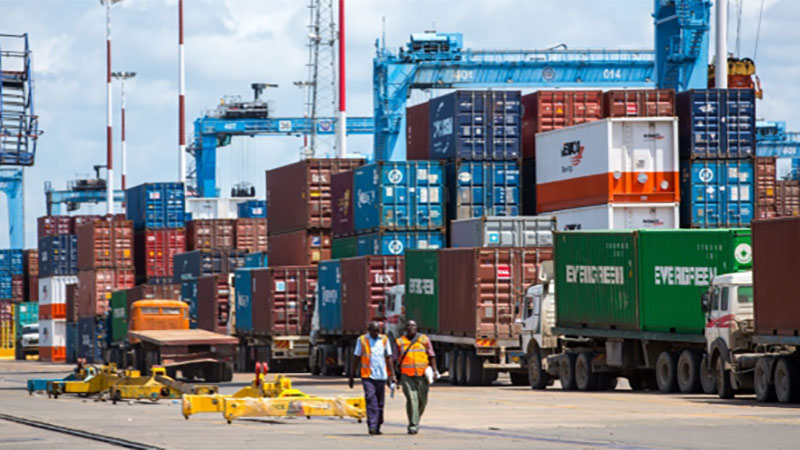The African Continental Free Trade Area (AfCFTA) agreement was signed by the majority of African Union Member States in March 2018, ratified by the required number of countries by May 2019, and came into force in January 2021. If all members ratify it, the agreement will bring together 1.4 billion people with a combined gross domestic product (GDP) of more than US$ 3 trillion.
Regional integration is contributing to economic prosperity and sustainable development. Achieving the aim of “Creating One African Market” will critically depend on addressing non-tariff barriers/measures (NTBs/NTMs) and trade facilitation -- not only tariffs. The economic restrictiveness of NTMs and trade facilitation is several times higher than that of current tariffs. This importance has been amply reflected in the negotiations and the agreement with ambitious Annexes under the Protocol on Trade in Goods on Customs Cooperation and Mutual Administrative Assistance (Annex 3), Trade Facilitation (Annex 4), Non-Tariff Barriers (Annex 5), Technical Barriers to Trade (TBT, Annex 6), Sanitary and Phytosanitary Measures (SPS, Annex 7) and Transit (Annex 8). Closely linked to these issues are also the issue of transport, covered under the Protocol on Trade in Services.
The programme contributes to improved economic conditions in Africa in line with Sustainable Development Goals (SDGs) 8 (decent work and economic growth), 9 (industry, innovation and infrastructure), 12 (responsible consumption and production), 17 (partnership for the goals, targets on increasing exports, enhancing knowledge sharing and policy coherence) and 2 (zero hunger).
The programme comprises four elements:
Non-tariff barriers (NTBs)
NTBs are restrictive regulations and procedures, other than tariffs, that add to the difficulty and cost of importing or exporting products. NTBs run the gamut from procedural delays at borders to highly technical product safety requirements.
The UN Trade and Development (UNCTAD) estimates that NTBs are at least three times more restrictive than regular customs duties. The latest report by UN Trade and Development estimates that African countries could gain US$ 7.1 billion in GDP growth by tackling such barriers and advancing regulatory cooperation at the continental level.
African nations also recognise the significance of NTBs, and have adopted an Annex to the AfCFTA Agreement specifically dedicated to eliminating NTBs.
The NTB element of this project has supported the development of the AfCFTA Non-Tariff Barriers Online Reporting, Monitoring and Eliminating Mechanism mandated under the Annex. The mechanism was launched by African Heads of State at the Extraordinary Summit of the African Union on 7 July 2019 in Niamey, Niger. Before that, the NTB online mechanism was reviewed and unanimously approved for implementation by all AU member States’ technical experts, Chief Negotiators, Senior Trade Officials and Ministers of Trade. UNCTAD worked closely with the African Union Commission to achieve this consensus.
The AfCFTA NTB online mechanism has the following core features:
- It is open to the private sector. Any company, including MSMEs, can register and report an NTB that it faces in day-to-day operations. UNCTAD and the AfCFTA Secretariat work to raise awareness among traders through webinars, physical workshops and information points at specific border posts.
- National Focal Points receive NTB complaints in real-time and are mandated by the NTB Annex to resolve NTBs within given deadlines. The communication and exchange of documents is facilitated through the online tool. UNCTAD and the AfCFTA Secretariat trained the Focal Points and continues to support them.
- The tool is compatible for real-time data exchange with regional tools in the RECs, for example the Tripartite NTB mechanism (tradebarriers.org).
- It also serves as a dissemination platform for supporting documents (such as the AfCFTA Agreement and Annex on NTBs, user manuals and FAQs, etc.).
- The tool is available in all official language of the African Union: English, French, Portuguese and Arabic.
- The tool is fully operational and available to the public at: https://tradebarriers.africa
- A smartphone App for iOS and Android was developed by UNCTAD and the AfCFTA Secretariat
Non-tariff measures (NTMs)
Increased regulatory transparency by itself reduces costs of NTMs significantly. The NTM element therefore creates regulatory transparency of all trade-related regulations, not just barriers. In collaboration with the governments, comprehensive regulatory data is collected at the national level and publicly disseminated on various online portals such as the Global Trade Helpdesk (UNCTAD, ITC, WTO) and UNCTAD Trains. The increased transparency also responds to provisions in several AfCFTA Annexes (on Sanitary and Phytosanitary Measures, Technical Barriers to Trade, Customs Cooperation and Trade Facilitation), and goes beyond. Furthermore, it supports domestic policy coordination and Good Regulatory Practice. Data can be freely accessed at https://trainsonline.unctad.org
Trade Facilitation
The Trade Facilitation component focuses on enhancing efficiency of procedures. In particular, those related to ensure free and unimpeded transit through AfCFTA State Parties, focusing on strengthening and improving trade and transit flows along key trade corridors such as the one from Durban through Zambia to the Democratic Republic of the Congo, by facilitating intra-regional solutions in this respect.
The preparation of a Roadmap on Developing and Implementing a National Border Agency Cooperation Strategy for Trade is a core component of the project. Agencies at the borders have a pivotal role in performing efficient transit procedures. As a consequence, creation and rolling out of a capacity building module and technical assistance will be provided to empower border agencies stakeholders by enhancing capacity and coordination with National Trade Facilitation Committees (NTFCs), to coordinate the implementation of trade and transit facilitation commitments under the AfCFTA.
To ensure an integrated approach, UNCTAD partners with relevant stakeholders in the field such as COMESA, SADC, GIZ, UN Economic Commission for Africa, and AfCFTA Secretariat.
Intellectual property (IP) rights.
The IP element focused on the providing technical assistance on regional cooperation on IP rights with the aim of supporting the removal of barriers to trade and facilitate the development of regional value chains for industrial diversification. The project supported the development of the AfCFTA Protocol on IP rights, from 2019-2022. UNCTAD provided expertise to negotiators, regional experts, and policy makers, in partnership with Africa Union, AfCFTA Secretariat and UNECA.
The project facilitated a series of training sessions for policy makers, private sector, and other IP stakeholders on key IP rights issues for regional cooperation. The project also supported negotiators in assessing parallel trade in IP-protected goods and the border measures applied by customs authorities to IP-protected goods within the AfCFTA. The project facilitated technical support for the preparation and implementation of the Partnership for African Vaccine Manufacturing (PAVM). The first phase negotiations of the AfCFTA were concluded with the adoption of the AfCFTA IP Protocol.
The project will continue to support the African region in better integrating the regional market for production and supply of technological goods affected by NTMs





